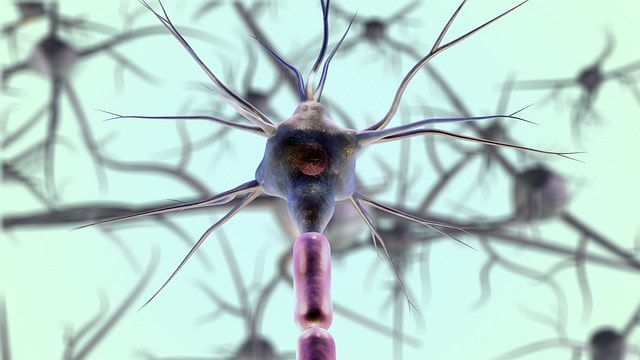Focalin vs Adderall: Key Differences and Which Might Be Right for You
Managing ADHD requires understanding available ADHD medication options to make informed decisions. Two popular choices, Focalin and Adderall, offer unique benefits and considerations. This blog explores their differences, similarities, and factors to consider when choosing the best medication for your needs.
What Are Focalin and Adderall?
Focalin
Focalin (dexmethylphenidate) is a central nervous system stimulant commonly prescribed for attention deficit hyperactivity disorder (ADHD). It works by increasing levels of dopamine and norepinephrine in the brain, which helps enhance focus, attention, and impulse control. Focalin is often favored for its refined formulation, as it contains only the active component of methylphenidate drugs, making it a more targeted treatment option.
Available in immediate-release and extended-release (Focalin XR) forms, providing flexibility in dosing.
Classified as a Schedule II controlled substance due to its high potential for abuse and dependence.
Typically prescribed for both children and adults with ADHD, offering improvements in productivity and symptom management.
Adderall
Adderall is a combination medication containing amphetamine and dextroamphetamine, making it a potent stimulant for ADHD treatment. It addresses ADHD symptoms by enhancing the brain’s reward pathways and increasing neurotransmitter activity.
Available in immediate-release (Adderall IR) and extended-release (Adderall XR) forms to suit individual treatment needs.
Like Focalin, it is classified as a Schedule II controlled substance.
In addition to ADHD, Adderall is FDA-approved to treat narcolepsy, providing benefits such as improved alertness and reduced excessive daytime sleepiness.
Both medications play crucial roles in treating ADHD and improving quality of life for those with attention and focus challenges. Understanding their unique formulations and effects is key to making the right choice for your treatment.
Treating ADHD: Treatment and Effectiveness
Both medications are effective for treating ADHD, but their suitability depends on individual factors.
Studies confirm Focalin and Adderall have similar efficacy for ADHD symptoms.
Personalized ADHD treatment is vital; one medication might work better based on a person’s unique needs.
For instance, a study in the Journal of Attention Disorders highlighted their comparable effectiveness in children, while research in the Journal of Clinical Psychopharmacology found similar results in adults.
Forms and Dosages
Flexibility in forms and dosages helps tailor treatment:
Focalin:
Immediate-release tablets: 2.5 mg, 5 mg, and 10 mg.
Extended-release capsules (Focalin XR): 5 mg to 40 mg.
Adderall:
Immediate-release tablets (Adderall IR): 5 mg to 30 mg.
Extended-release capsules (Adderall XR): 5 mg to 30 mg. Adderall XR capsules are often chosen due to shortages of immediate-release Adderall, providing a consistent therapeutic effect throughout the day.
This range supports individualized dosing, enhancing the effectiveness of ADHD treatment.
How Focalin and Adderall Work as Central Nervous System Stimulants
Both medications belong to the same drug class, acting on the brain’s dopamine and norepinephrine levels to improve focus and reduce impulsivity. Both Focalin and Adderall are used to treat ADHD, but they have different active ingredients and effects.
Focalin uses dexmethylphenidate for a targeted approach.
Adderall includes mixed amphetamine salts, providing broader stimulant effects.
Side Effects and Interactions
While effective, these medications have potential side effects and drug interactions, including with blood pressure medication:
Common Side Effects
Insomnia, anxiety, and weight loss.
Digestive issues like stomach pain and nausea.
Serious Risks
Increased blood pressure, cardiovascular problems, and mental health concerns like mood swings.
Drug Interactions
Both medications can interact with:
Monoamine oxidase inhibitors (MAOIs), increasing the risk of serotonin syndrome.
Blood pressure medications, amplifying the risk of hypertension.
Tricyclic antidepressants, which can enhance stimulant effects.
Always consult a healthcare provider before combining medications.
Warnings and Precautions
Both medications are classified as Schedule II controlled substances, indicating a high potential for abuse and dependence.
Cardiovascular Risks: Both can elevate heart rate and blood pressure, increasing the risk of chest pain or even a heart attack.
Substance Abuse History: Individuals with a history of addiction should approach these medications cautiously.
Pregnancy and Breastfeeding
Classified as pregnancy category C, indicating potential risks to the fetus.
Both medications pass into breast milk, posing risks to nursing infants.
Pregnant or breastfeeding women should consult their healthcare professional before use. Behavioral therapy is an alternative treatment option for ADHD during pregnancy, offering a non-pharmacological approach for those concerned about medication risks.
Insurance Coverage and Cost Comparison
Insurance coverage and costs for Focalin and Adderall vary:
Generic versions (generic Focalin and generic Adderall) are more affordable.
Coverage depends on individual plans, so checking with insurance providers is essential.
Choosing the Right Medication
Selecting between Focalin or Adderall depends on various factors related to ADHD medications:
Medical history: Certain conditions may favor one over the other.
Personal preferences: Some patients prefer the effects or side-effect profile of one medication.
Treatment goals: Discussing options with a healthcare provider ensures alignment with your needs.
Switching Medications
Switching between Adderall Focalin requires careful planning:
Adjustments to dosage or formulation might be necessary.
Always consult with a healthcare provider for a safe transition.
Conclusion
Focalin and Adderall are effective stimulant medications for managing ADHD. While they share many similarities, subtle differences can influence their suitability for individuals. Understanding these medications’ distinct features, side effects, and risks is essential for making informed decisions about your treatment. Consulting with a healthcare provider ensures that your ADHD management aligns with your unique needs and health goals.
For those seeking additional support, Opus Treatment offers a comprehensive approach to ADHD treatment and mental health care. Based in Southern California, Opus Treatment provides tailored programs that combine medical expertise with holistic care. Their team of professionals specializes in addressing co-occurring mental health conditions and medication management, ensuring that patients receive the most effective and personalized care.
Opus Treatment emphasizes creating an environment of understanding and support. Whether you’re exploring ADHD medication options, managing side effects, or seeking behavioral therapies to complement stimulant medications like Focalin or Adderall, Opus Treatment can guide you every step of the way. Their evidence-based methods and compassionate care make them a trusted partner in achieving long-term well-being.
If you’re ready to explore ADHD management options or need expert guidance on treatment decisions, reach out to Opus Treatment to begin your journey to better mental health.
FAQ's
The strength of Focalin and Adderall depends on individual responses to the medications rather than a direct comparison. Focalin contains dexmethylphenidate, a refined version of methylphenidate, which provides a targeted stimulant effect. Adderall, on the other hand, is composed of mixed amphetamine salts, offering a broader stimulant profile. While both medications are effective for treating ADHD, some people may find one more effective or tolerable than the other. It’s essential to work with a healthcare provider to determine the best option for your specific symptoms and needs.
Both medications share similar side effects, including insomnia, anxiety, weight loss, and nausea. They may also cause increased heart rate and blood pressure. Serious risks include cardiovascular problems, such as heart attack or stroke, particularly in individuals with preexisting heart conditions. Additionally, they can lead to dependency due to their classification as Schedule II controlled substances. Drug interactions, such as with MAOIs or blood pressure medications, can increase the risk of adverse effects. Always discuss your medical history and any other medications you’re taking with a healthcare provider before starting Focalin or Adderall.
Yes, both medications can be used to treat conditions beyond ADHD. Adderall is FDA-approved to treat narcolepsy, a sleep disorder characterized by excessive daytime sleepiness. While Focalin is primarily approved for ADHD, it may sometimes be prescribed off-label for other cognitive or attention-related conditions. However, off-label use should only be considered under the guidance of a healthcare provider. If you’re exploring treatment options for conditions other than ADHD, a medical professional can recommend the most appropriate approach.
Both Focalin XR and Adderall XR are extended-release formulations designed to provide long-lasting symptom control for ADHD. Focalin XR delivers dexmethylphenidate over an extended period, offering smoother and more targeted effects throughout the day. Adderall XR releases a combination of amphetamine salts in two phases, providing sustained energy and focus. The effectiveness of these medications can vary from person to person. Factors such as your medical history, daily schedule, and response to medication will influence which extended-release option works best for you. Consulting with your healthcare provider is crucial to finding the right fit.















